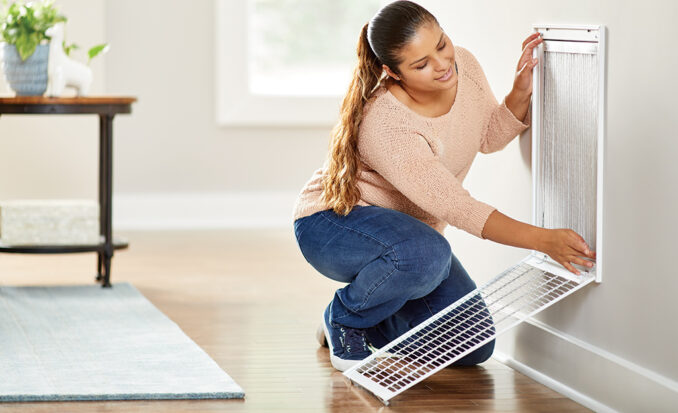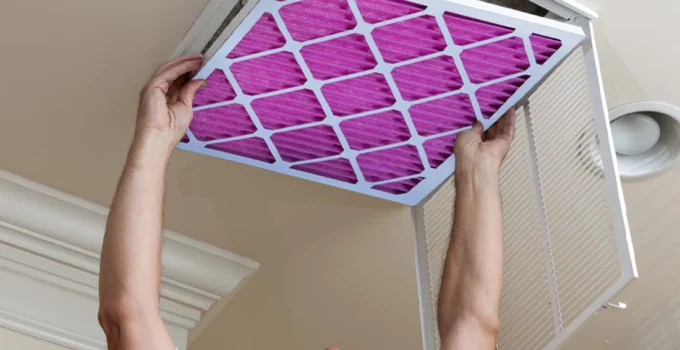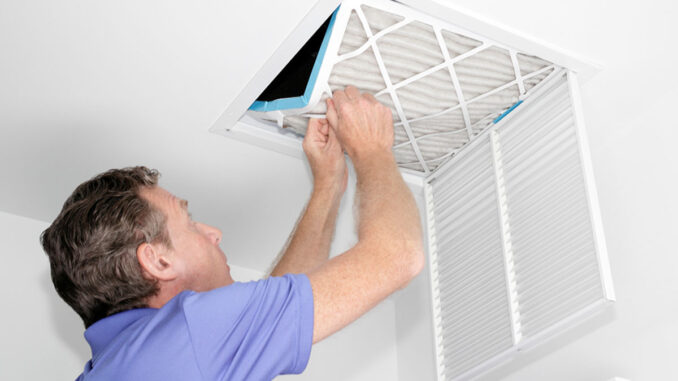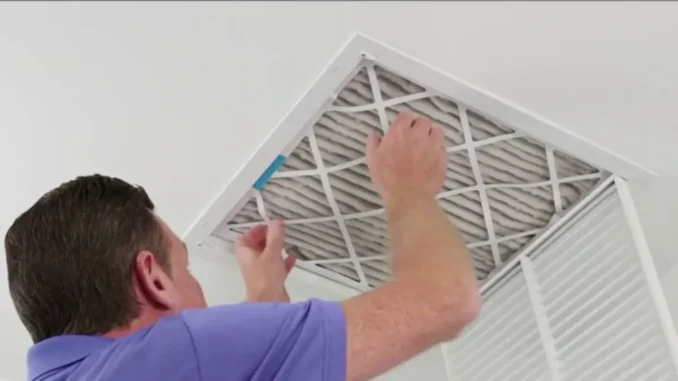Making sure our homes have clean, fresh air has become essential at a time when air quality is becoming a bigger concern. Because there are so many different types of allergens, pollutants, and particles indoors, choosing the right air filter is essential to establishing a healthy home.
It can be daunting, though, to sort through the plethora of options on the market. Do not worry; this thorough guide will help you understand the process of purchasing an air filter for your house.
Understanding Your Needs
Understanding your unique needs in great detail is the first step in selecting an air filter. First things first, you must determine the goal.
- Allergies or asthma ─ It is important to think about getting a High-Efficiency Particulate Air (HEPA) filter if you or any members of your family have respiratory conditions or allergies. For people sensitive to airborne irritants, HEPA filters—renowned for capturing allergens and minute particles—significantly improve indoor air quality.
- Odour removal ─ Because activated carbon filters are so good at absorbing gasses and odors, they may be a better option for getting rid of odors that are persistent from cooking, pets, or other sources.
- Improving general air quality ─ Those looking to improve the quality of the air, in general, may choose a combination filter or one with extra features like UV-C light technology for killing germs and thorough air purification.
- Determine room size ─ It is important to determine the exact square footage of the room or rooms that the air filter will be used in. To ensure optimal performance depending on the area being filtered, different filters are designed for different room sizes.
Types of Air Filters
Understanding the various types of air filters available on the market is pivotal in choosing the most suitable one:
- HEPA filters ─ Among the most efficient filters available, HEPA filters are capable of capturing up to 99.97% of particles as small as 0.3 microns. Their unparalleled ability to trap dust, pollen, pet dander, and other allergens makes them ideal for those seeking maximum allergen and pollutant removal.
- Activated carbon filters ─ These filters are highly effective in absorbing odors, gasses, and volatile organic compounds (VOCs). Their unique composition allows them to efficiently eliminate various unpleasant odors, contributing to an improved overall air freshener.
- UV filters ─ Leveraging Ultraviolet (UV) light technology, these filters are adept at killing bacteria, viruses, and mold spores present in the air, thus enhancing the overall air quality by neutralizing harmful pathogens.
- Electrostatic filters ─ Operating via static electricity, these filters attract particles and are washable, making them reusable, cost-effective, and environmentally friendly, ensuring sustained air purification without the need for frequent replacements.
Filter Efficiency Ratings
Gaining knowledge of air filter efficiency ratings can help you better understand how well they work.
- MERV rating ─ Air filter effectiveness is evaluated using the Minimum Efficiency Reporting Value (MERV), which runs from 1 to 20. Higher MERV ratings are indicative of better filtration power. Higher MERV 13 Air Filters, however, may result in less efficient airflow, so filtration effectiveness and airflow must be balanced.
- CADR rating ─ The amount of clean air generated by an air filter is evaluated using the Clean Air Delivery Rate. Selecting filters with greater CADR ratings guarantees superior circulation and air purification capabilities overall.
Consider Additional Features
Beyond its primary filtration capabilities, taking into account supplementary features improves the selected air filter’s overall effectiveness:
- Level of noise ─ When operating, some air filters may produce audible noise. Consider models that prioritize quiet operation without sacrificing filtration efficiency if you need a quiet environment.
- Energy efficiency ─ Energy Star-certified filters are made with less electricity in mind, which could result in lower utility costs and a more environmentally responsible air purification method.
- Filter replacement indicator ─ Indicators that alert users when a filter needs to be cleaned or replaced make maintenance easier and guarantee that the filter always performs at maximum efficiency.
Budget and Maintenance

Source: homedepot.com
It is essential to consider long-term expenses and maintenance:
- First cost ─ Identifying a budget range enables the investigation of appropriate solutions falling inside that range. Higher-quality filters may cost more upfront, but they usually last longer and perform better, so they are a wise investment in the long run.
- Maintenance ─ Adhering to the manufacturer’s guidelines for recommended filter replacement intervals and cleaning procedures ensures sustained optimal performance of the air filter over time. Regular maintenance is key to maximizing the longevity and effectiveness of the filter.
Research and Comparison
Making an informed decision involves conducting extensive research:
- Read reviews ─ Gathering insights from customer reviews and expert opinions provides valuable information on real-world performance, durability, and user experiences with specific air filter models.
- Compare brands and models ─ Considering reputable brands known for producing quality air filtration systems allows for a detailed comparison of features and functionalities that align with your unique requirements and preferences.
Purchase and Installation
The final steps involve purchasing the air filter and ensuring its proper installation:
- Purchase from reputable sources ─ Opting to purchase from trusted retailers or directly from manufacturers ensures authenticity, warranty coverage, and reliable customer service, guaranteeing a seamless buying experience.
- Installation ─ Following the manufacturer’s instructions for proper installation is crucial for optimal performance. Seeking professional assistance, especially for larger or more complex filtration systems, ensures correct setup and functionality.
Final Words
It is a significant investment in your health and well-being to use air filters to improve the quality of the air indoors. With confidence, you can select the ideal air filter for your home by taking into account your unique needs, comprehending the various kinds, evaluating efficiency ratings, and investigating extra features. Your air filter will continue to provide clean, fresh air for many years if you perform routine maintenance and replace the filter on time.
Recall that an appropriately selected air filter makes a big difference in creating a healthier indoor atmosphere, making it easier for you and your loved ones to breathe and live comfortably at home.
You can get the best air filter for your home or commercial place from custom filters direct. They offer quality filters and also customize that according to user requirements.








